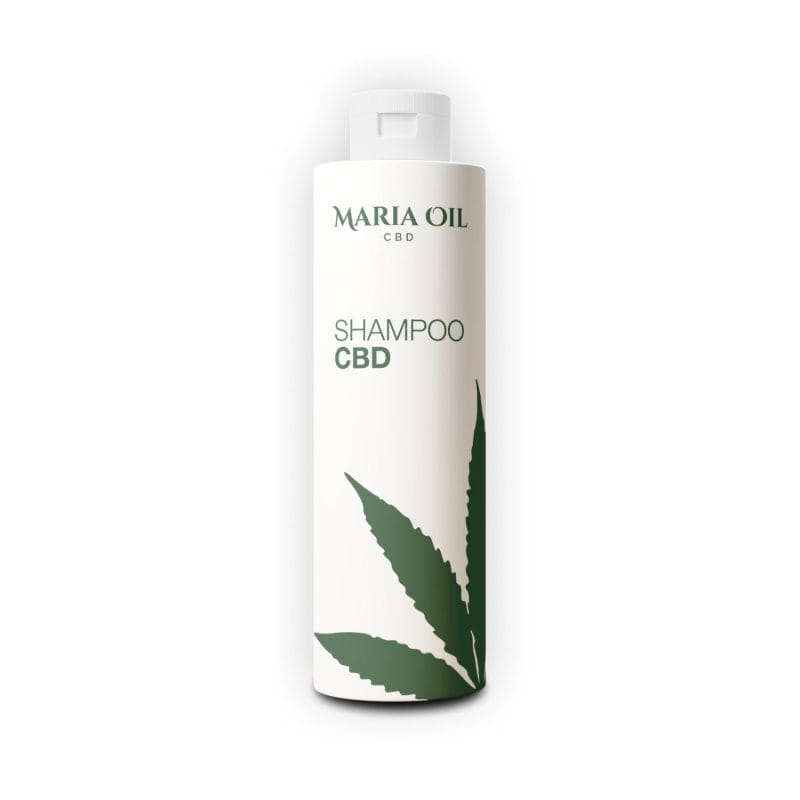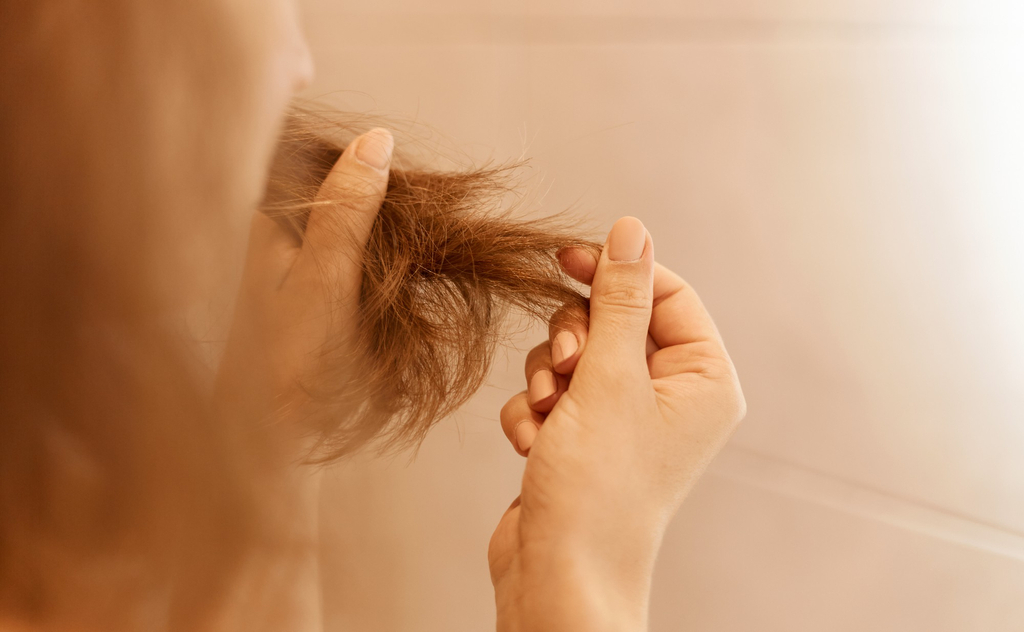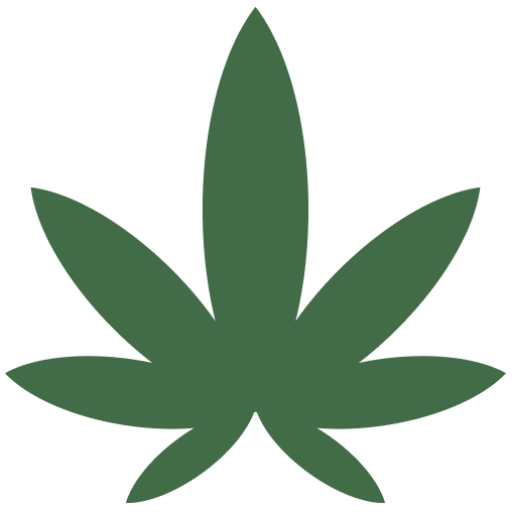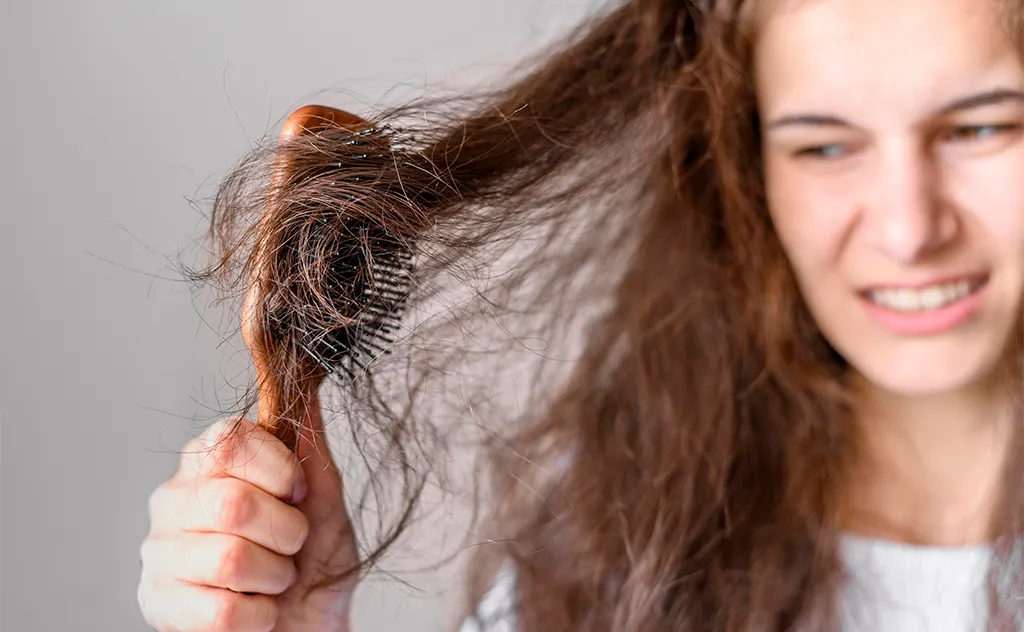Having beautiful hair can become a challenge, especially if you are dealing with dry, dull hair.
Dry hair, often caused by various factors such as overuse of chemicals, sun exposure and excessive heat, can appear brittle and lifeless.
How to make it strong and shiny? The key is not just genetics, it is above all the way you take care of them.
For a healthy beauty routine for your hair, you need to forget about supermarket products, straighteners or hairdryers that can wear it down, and other stressors such as colouring or chemical perms.
Together we will explore gentle but effective methods to restore vitality to your dry hair. From choosing natural ingredients to targeted care routines, you will discover how to breathe new life into your hair without resorting to harmful products or invasive treatments.
Get ready to discover a world of gentle, environmentally friendly solutions to transform your dry hair into a cascade of health and beauty. And you will see that having beautiful hair is anything but a matter of genetics and predisposition. Just as you take care of every other part of your body, you must also take proper care of your hair.
-
Product on sale
 CBD ShampooOriginal price was: £16.99.£6.80Current price is: £6.80.
CBD ShampooOriginal price was: £16.99.£6.80Current price is: £6.80.
What causes dry hair?
Dry hair can be caused by several factors, often related to poor care practices or harmful environmental exposure.
Here are some of the most common causes of dry hair:
- Excessive use of chemical products: frequent use of aggressive shampoos, conditioners rich in silicones and chemical treatments can deprive hair of its natural moisture and is one of the primary causes of dryness;
- Exposure to heat: excessive use of thermal styling tools such as hairdryers, straighteners and curling irons can dry out the hair’s moisture and damage its structure, especially when at high temperatures;
- UV exposure: prolonged exposure to the sun without protection can damage the hair cuticle;
- Frequent washing: washing hair too often can remove its natural oils;
- Poor nutrition: a diet low in essential nutrients, such as vitamins and proteins, can affect hair health;
- Environmental factors: the surrounding environment, such as dry weather or polluted air.
It is very important to understand what is the cause, or causes, that are most damaging to your hair. This is indeed the starting point to start caring for it in a more conscious way.
You also need to know that the structure of the hair changes every seven years, so you may be in a cycle where your hair is weaker or more fragile, which means you need to treat it more carefully.
How is dry and frizzy hair?
The main symptoms of dry hair are lack of moisture and disruption of the cuticular structure, making it more vulnerable to external agents.
Let’s see what dry, frizzy hair looks like:
- Dull appearance: they tend to lose their natural shine, appearing dull and lifeless;
- Roughness to the touch: lack of hydration can make the hair rough to the touch;
- Easiness to break: they can be more brittle, with the presence of split ends and the formation of knots;
- Staticity: dry hair tends to become frizzy, with strands separating easily;
- Difficulty in styling: the lack of elasticity in dry hair can make styling difficult, with resistance to desired hairstyles.
If you have noticed one or more of these symptoms in your hair, it is likely that you are suffering from dry and brittle hair. The good news is that it will not be like this forever, as there are cures and remedies that will allow you to restore it to its former glory.

Best natural remedies to combat dry hair
We will never tire of repeating that natural remedies, even those that were used thousands of years ago, are always the best solution for our body.
The remedies for damaged hair that we are about to suggest are a mix of good habits and natural principles that you should integrate into your beauty routine. They may take you a little longer in the beginning, but it is that loving gesture that will make all the difference in the long run.
If you want to make a change, you have to get out of your comfort zone, stop using the first products you get your hands on and stop stressing your hair. It is time to take care of it with kindness and respect.
Let us look together at the best remedies for dry hair.
Avoid washing your hair too often
As we mentioned earlier, washing hair too frequently can remove the natural oils produced by the scalp, contributing to dryness and making hair more brittle. This is why spacing out the days between washes can be beneficial for maintaining the health and hydration of dry hair.
Let’s look at some important considerations and washing tips:
- Regularity: there is no single rule for how often you wash your hair, as it depends on your hair type and lifestyle; in general, avoiding washing your hair every day can help preserve its natural oils;
- Mild shampoo: when washing your hair, use a mild, moisturising shampoo, preferably without sulphates;
- Nourishing conditioner: after shampooing, use a good moisturising conditioner concentrating especially on the ends;
- Warm or cold water: avoid using water that is too hot when washing, as hot water can help deprive hair of its natural moisture, while warm or cold water helps seal the cuticles and retain moisture;
- Moderate use of products: limit the use of products and thermal styling.
Sometimes you may not have the time or be in the material condition to take care of your hair so thoroughly, perhaps when you are travelling. This is fine, the important thing is that most of the time you follow a conscious routine.
Use moisturising masks and nourishing natural oils
Moisturising it by washing it properly may not be enough, especially in the initial phase when your hair is damaged and needs to be treated more carefully.
The use of moisturising masks and nourishing natural oils is an excellent remedy to give it a boost. These treatments provide essential substances, hydration and can significantly improve the overall health of your hair.
Here is how you can incorporate masks and oils into your care routine:
- Moisturising mask: choose a mask containing ingredients such as olive oil, coconut oil, aloe vera or honey, apply it evenly to clean, slightly damp hair with particular attention to the ends, leave on for the time recommended by the manufacturer and rinse with plenty of lukewarm water;
- Natural nourishing oil: you can go for coconut oil to be massaged into the scalp and lengths, olive oil to be applied to the hair and wrapped with a warm towel, CBD and Argan oil to be applied to the ends, or you can choose jojoba oil, which is similar to natural scalp oils;
- Frequency of application: use masks or nourishing oils once or twice a week, depending on the needs of your hair, and adjust the frequency according to the severity of dryness and individual response;
- Integrate into your routine: incorporate these treatments into your care routine, perhaps occasionally replacing your regular conditioner with a moisturising mask.
Regular use of moisturising masks and natural oils can help restore moisture, shine and softness to dry hair. However, you need to understand at what rate to do this by observing your hair’s response.
Reduce straighteners, curling irons or other hot styling tools
Frequent exposure to heat can seriously damage the hair structure, contributing to dryness and brittleness.
Let’s see how to consciously manage drying and styling:
- Natural drying: let your hair air-dry whenever possible and, if you have to use a hairdryer, set the temperature to low or medium levels and maintain an adequate distance;
- Limit the use of straighteners and irons: reduce the frequency of use or choose tools with protective technologies such as ceramic straighteners;
- Heat protection: before using any heat tools, apply a heat protectant to your hair;
- Heat-free hairstyles: experiment with natural looks such as braids, ponytails, chignons or hairstyles with accessories;
- Cool gradually: if you have used heat tools, let your hair cool gradually before touching or brushing it to avoid damage to the structure;
- Regular trimming: trim your hair regularly to avoid the build-up of split ends;
- Flexibility in your styling routine: be flexible in creating your looks, you don’t always need to apply heat to achieve a fabulous look.
Today, styling technologies have also evolved a lot, so we suggest you pay special attention to what you buy in order to choose quality and non-invasive tools.
Follow a healthy diet
We said it at the beginning, nutrition is crucial for the health of your whole body, including your hair.
Here are some dietary tips to combat dry hair:
- Protein: Can’t miss to stop hair loss, make sure to include meat, fish, eggs, dairy products, pulses and nuts in your diet;
- B vitamins: biotin (B7), niacin (B3) and folic acid (B9) are crucial for healthy hair, you can find them in whole grains, eggs, lean meat, green leafy vegetables and pulses;
- Vitamin E: has antioxidant properties that can protect hair from environmental damage, add nuts, seeds, spinach and wheat germ oil to your diet;
- Iron: insufficient iron intake can contribute to hair loss, so incorporate lean red meat, chicken, fish, pulses and green leafy vegetables into your diet;
- Omega-3 and omega-6: omega-3 fatty acids (found in fish, flaxseeds and walnuts) and omega-6 fatty acids (found in vegetable oils and seeds) are important for maintaining hair and scalp hydration;
- Zinc: involved in hair growth and tissue repair, found in meat, seafood, pumpkin seeds and nuts;
- Water: internal hydration is just as important as the application of external treatments;
- Fruits and vegetables rich in vitamins and minerals: increase consumption of colourful fruits and vegetables, rich in vitamins A, C and antioxidants that support overall hair health;
- Whole grains: provide important nutrients such as B vitamins and zinc; opt for wholemeal bread, brown rice and quinoa;
- Limit processed and sugary foods: reduce consumption of processed, sugary foods and foods high in saturated fats.
These are general indications. If you want a diet that really suits you, you should consult a health professional or nutritionist.
Specific products to nourish and repair dry hair
There is a huge choice of hair products to give you the opportunity to find the most suitable ones for your needs.
To nourish and repair dry hair, you need to use specific products designed to provide intensive hydration and repair.
Here are some products that may be useful:
- Moisturising and nourishing shampoo: products containing ingredients such as olive oil, coconut oil, keratin or hyaluronic acid can help restore moisture and softness;
- Repairing conditioner: choose a rich, moisturising conditioner that deeply nourishes the hair, with ingredients such as argan oil, vitamin E, silk protein or shea butter;
- Hair mask: ingredients such as avocado, banana, honey or jojoba oil are often included in nourishing masks;
- Hair oil: apply to the lengths and ends of the hair as a pre-wash treatment or overnight treatment;
- Moisturising spray: can be useful to revitalise dry hair during the day, it should contain moisturising ingredients such as coconut water, glycerine or hyaluronic acid;
- Sulphate- and paraben-free products: this can help keep hair moisturised without damaging it further;
- Oral supplements: to immediately energise your brittle hair, you can consider oral supplements for dry hair, again based on natural nutrients.
Remember that a quality product is an investment in your health and not just an expense for your wallet. At this stage, therefore, do not let yourself be influenced by the price but prefer the ingredients with which it is formulated.
-
Product on sale
 CBD ShampooOriginal price was: £16.99.£6.80Current price is: £6.80.
CBD ShampooOriginal price was: £16.99.£6.80Current price is: £6.80.
Daily care and management routines for dry hair
Having come this far, we know that we have given you a lot of advice. To simplify, what should you do every day to take care of your dry hair?
Let’s go through a typical day step by step.
In the morning:
- Hair washing: wash your hair with a moisturising and nourishing shampoo once or twice a week, if your hair is very dry you can wash it even less often;
- Conditioner application: apply a moisturising and nourishing conditioner after shampooing and leave it on for 3-5 minutes before rinsing.
In the evening:
- Brushing the hair: brush the hair gently with a brush with natural bristles, starting from the ends towards the roots;
- Applying oil: apply moisturising oil to wet or dry hair as required.
As far as oil is concerned, the most effective formulations are pure aloe vera for the lengths, linseed oil for the ends and CBD oil. The benefits of CBD cosmetics range from hydration to nourishment, offering a truly complete product.
How to maintain healthy hair in the long term
Before leaving us, let us write down a decalogue of rules to follow in order to always have healthy and strong hair, and to ensure that dry hair remains just a distant memory.
The rules to follow are:
- Wash your hair with a moisturising shampoo and conditioner;
- Apply a hair mask once a week;
- Brush the hair gently from tip to root;
- Avoid too frequent washing;
- Use heat styling tools at moderate temperatures;
- Expose hair to the sun knowledgeably;
- Avoid too tight hairstyles;
- Follow a healthy diet;
- Consume enough water;
- Keep stress at bay.
By following these tips, you can help keep your hair healthy and shiny for many years to come.
 Contact us
Contact us 






